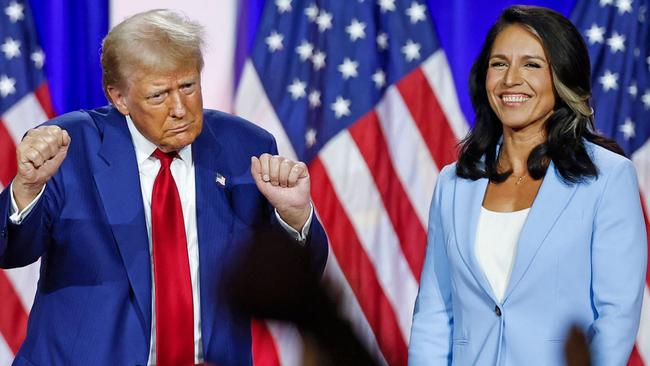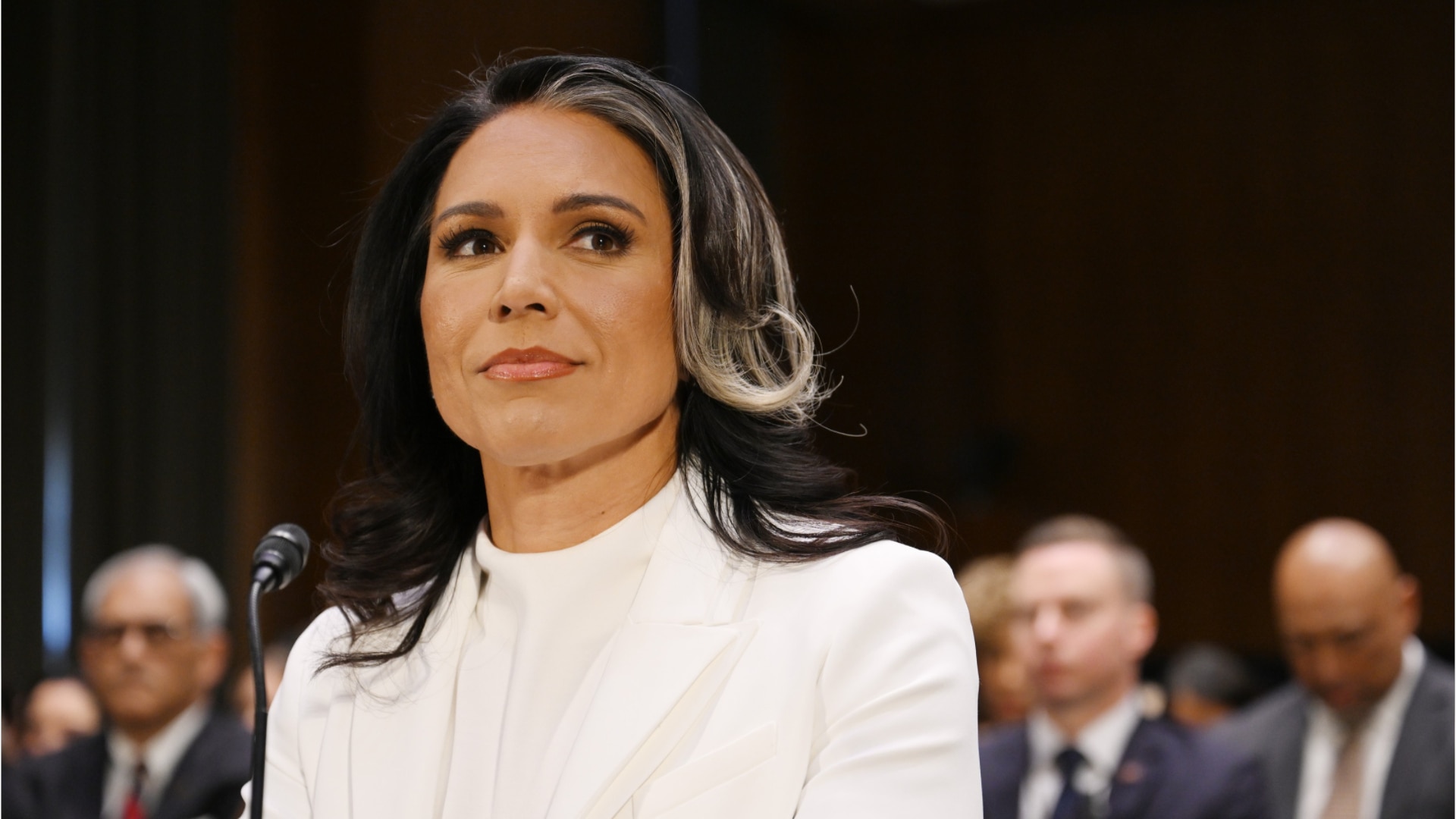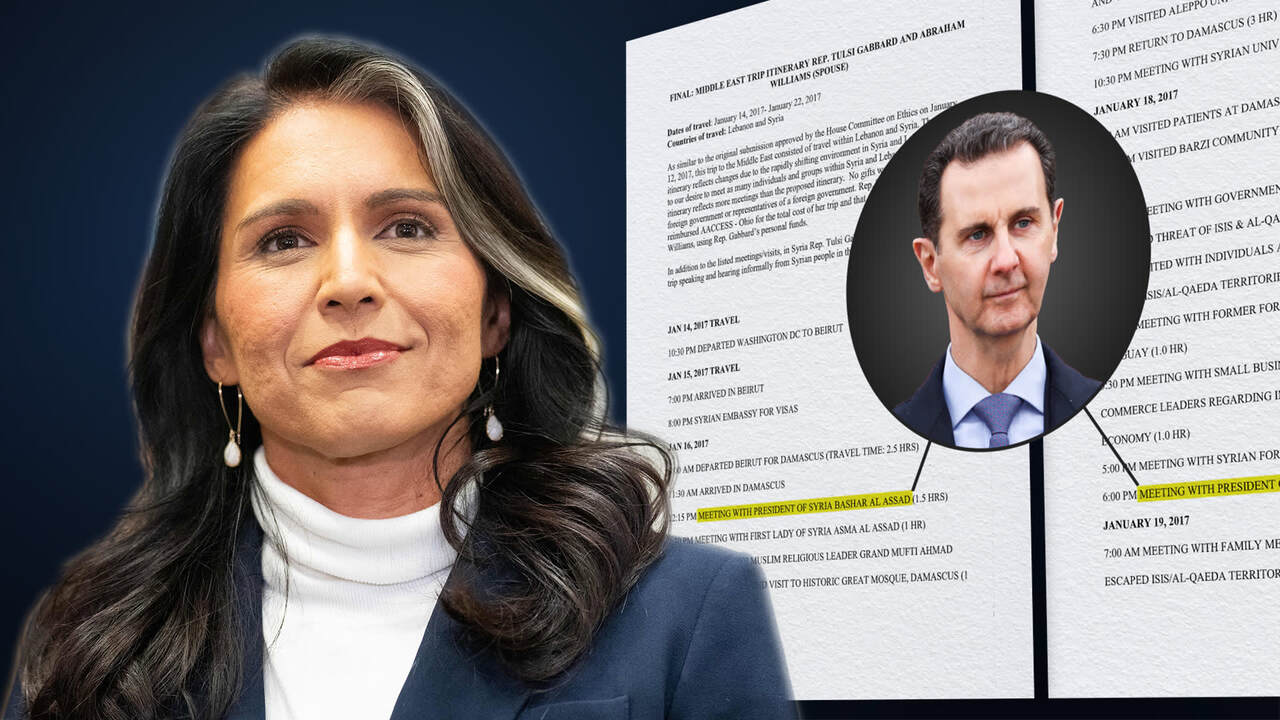Senate confirms Tulsi Gabbard as intelligence chief
Tulsi Gabbard was confirmed by a vote of 52 to 48 after she overcame scepticism within her own party about whether she was the right person for the post.

The US Senate has voted largely along party lines to confirm Tulsi Gabbard as the director of national intelligence, after she overcame scepticism within her own party about whether she was the right person for the post.
Gabbard, a combat veteran and former Democratic congresswoman from Hawaii, was confirmed by a vote of 52 to 48 in the GOP-controlled Senate. Sen. Mitch McConnell (R., Ky.) broke with his party to side with Democrats in voting “no.” Senate Majority Leader John Thune (R., S.D.) called Gabbard a “patriot” in remarks on the Senate floor ahead of the vote, praising her “knowledge and leadership capabilities.” Thune also said he is glad that Gabbard has “expressed a willingness to right-size” the office of the director of national intelligence to cut costs.
Trump’s pick to oversee the intelligence community had faced concerns among some GOP senators over her qualifications, her past favourable comments about foreign leaders including Vladimir Putin, and her refusal to firmly condemn former U.S. intelligence contractor Edward Snowden, who leaked U.S. secrets.

Gabbard committed to Sen. Susan Collins (R., Maine) that she wouldn’t make any recommendation on Snowden’s legal standing, such as a pardon, and Sen. Todd Young (R., Ind.) received a letter from Gabbard in which she pledged to hold accountable anyone who is suspected of making an unauthorised disclosure of any intelligence program.
Some lawmakers said they were relying on Trump’s judgment. Sen. Bill Cassidy (R., La.) said he “will trust President Trump on this decision and vote for her confirmation.” Democratic senators complained that their Republican colleagues were unwilling to stand up to Trump and vote Gabbard’s nomination down, even though they had expressed reservations about her.
Senate Minority Leader Chuck Schumer (D., N.Y.) said he was proud that every single Democrat opposed Gabbard’s nomination “because we simply cannot in good conscience trust our most classified secrets to someone who echoes Russian propaganda and falls for conspiracy theories.” “I worry that allies will be more reluctant to share critical information with the U.S. if people like Gabbard hold key intelligence posts,” said Sen. Tim Kaine (D., Va.).
Gabbard served on a House Armed Services subcommittee on intelligence and has held security clearances in the military, but she lacks the intelligence-bureaucracy experience of many of her predecessors as head of the Office of the Director of National Intelligence, or ODNI. Her ascendance to the role of the country’s spy chief illustrates deep changes that the administration has forecast it will make to a service Trump has maligned since his first term in office.

During the confirmation process, Gabbard said she planned to cut personnel and heighten transparency in the 18 intelligence agencies that are now under her control, while also ending what she described as the agencies’ politicisation.
Gabbard cited the intelligence failure that led to the U.S. invasion of Iraq in 2003 and challenged the authority of a warrant that allowed counterintelligence agents to surveil Trump campaign staffer Carter Page in 2016.
“For too long, faulty, inadequate, or weaponised intelligence have led to costly failures and the undermining of our national security,” Gabbard said in remarks to the Senate Intelligence Committee. “I will do my very best to find the truth, no matter where it leads.” Trump “wants somebody who he doesn’t see as connected to the so-called deep state,” said Michael Ard, the director of the Johns Hopkins intelligence analysis program and a former ODNI deputy national intelligence officer. “She certainly cuts a different figure than all the other people who’ve been in the role. Maybe we need people like that. Maybe not in this role.”
Dow Jones



To join the conversation, please log in. Don't have an account? Register
Join the conversation, you are commenting as Logout